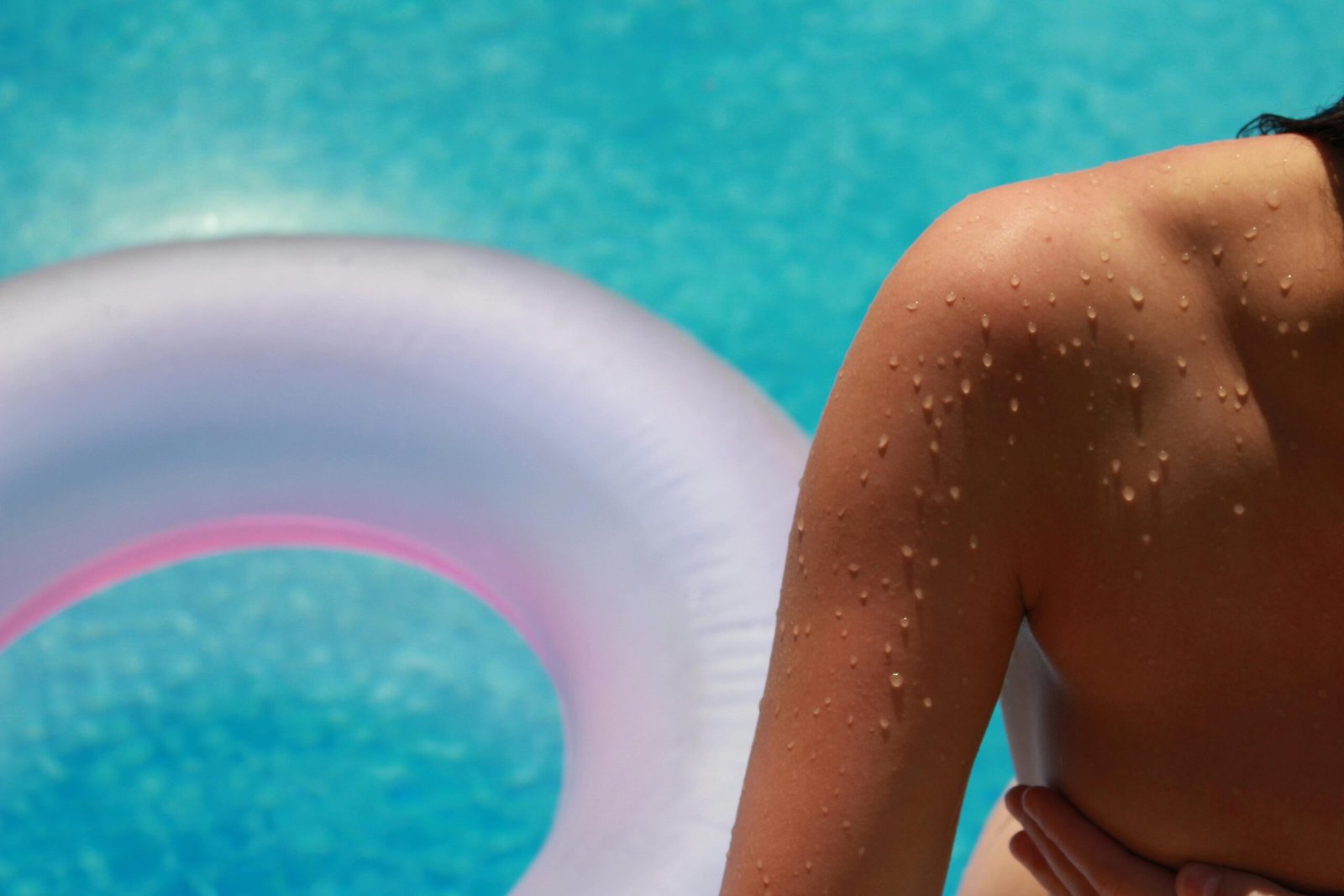Best DIY Skincare on a Budget: Easy and Effective Recipes
October 26, 2024 | by A Skincare Enthusiast
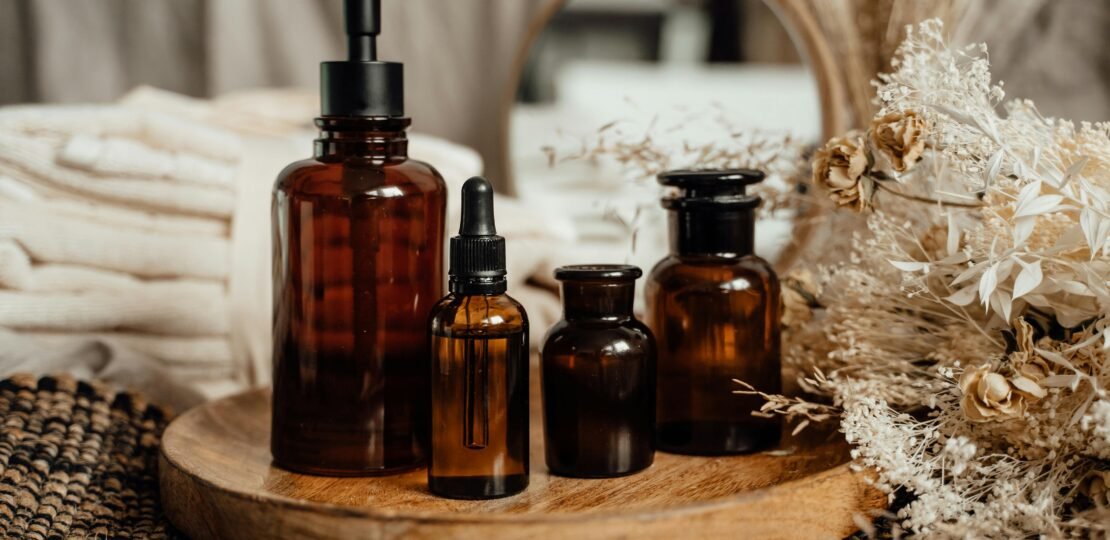
What is DIY Skincare?
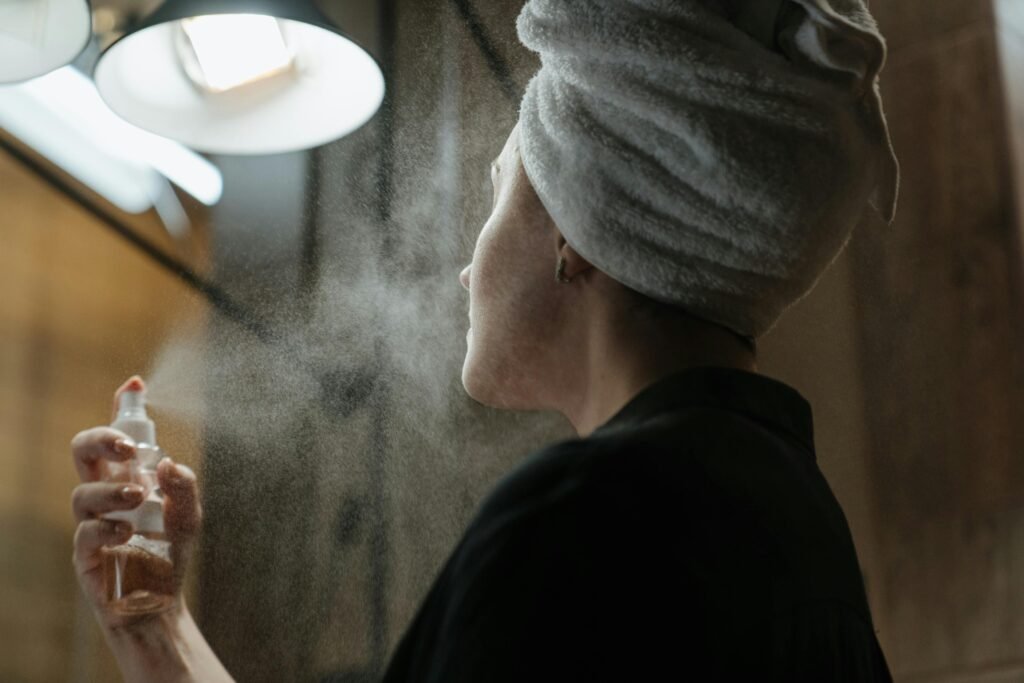
DIY skincare involves creating beauty remedies at home using natural ingredients typically found in your kitchen or local grocery store. These self-made skincare recipes aim to tackle skin issues, such as dryness, acne, and hyperpigmentation, eliminating the necessity for commercial products. The principle is based on utilizing pure, whole ingredients like aloe vera, oats, or rice to formulate customized skincare solutions that are both effective and cost-efficient.
Benefits of DIY Skincare:
- Budget-friendly: Utilizes inexpensive, everyday ingredients.
- Personalized: Adjusts components to match your skin type and issues.
- Chemical-free: It does not have additives and preservatives often found in store-bought skincare.
Nonetheless, it’s crucial to verify that your selected ingredients suit your skin type and won’t trigger allergies or irritation. Numerous dermatologists endorse easy DIY solutions but always advise caution and patch-testing beforehand.
Natural DIY Skincare Recipes
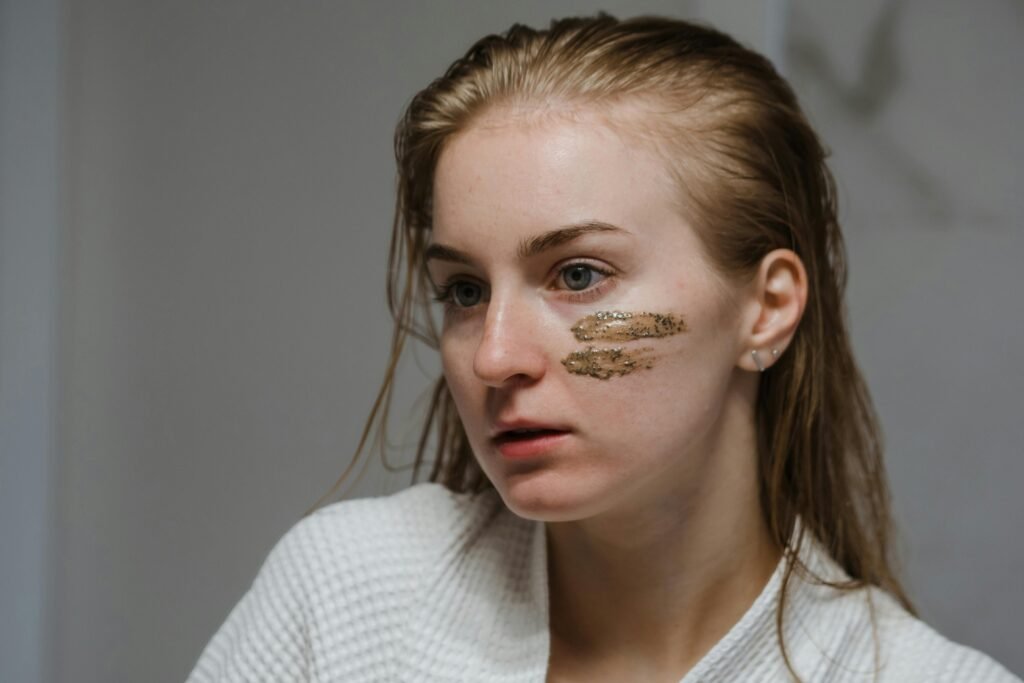
DIY skincare offers complete control over the products applied to your skin. It allows you to avoid harmful chemicals and customize ingredients based on your skin’s requirements. Natural skincare recipes can also target specific concerns, ranging from hydration to brightening.
Homemade Face Cream for Glowing Skin
Crafting a homemade face cream for glowing skin can be incredibly fulfilling. It leads to a smooth and luminous complexion. Ingredients like aloe vera, glycerin, and rose water deliver natural hydration and antioxidant benefits.
Ingredients
- 2 tbsp aloe vera gel (fresh or 100% pure store-bought)
- 1 tsp vegetable glycerin (optional for extra moisture without oils)
- 1 tsp rose water or distilled water (for a smoother consistency)
- 1-2 drops of essential oil (optional, like lavender or chamomile for soothing properties)
Instructions
- Mix aloe vera and glycerin: Combine the aloe vera gel and vegetable glycerin in a clean bowl. Stir until well blended.
- Add rose water: Slowly add the rose water (or distilled water) and mix thoroughly until the cream reaches a smooth, lotion-like consistency.
- Add essential oils (optional): If you’re using essential oils, add 1-2 drops and mix well.
- Transfer and store: Pour the mixture into a small, clean container with a lid. Store it in the refrigerator to keep it fresh for 1-2 weeks.
Homemade Dark Spots Face Mask
If you’re dealing with dark spots, a homemade face mask targeting this issue can provide a gentle alternative to irritating ingredients. Ingredients like gram flour, turmeric, and yogurt/milk are commonly used in DIY skincare because of their natural skin-brightening effects. This mask is also great for oily acne-prone skin.
Ingredients
- 2 tbsp gram flour (besan)
- 2 tbsp yogurt (for oily skin) or milk (for dry skin)
- A pinch of turmeric powder
Instructions
- Mix the dry ingredients: In a clean bowl, combine the gram flour and a pinch of turmeric powder. Stir until well blended.
- Add yogurt or milk: Slowly add the yogurt (for oily skin) or milk (for dry skin) to the dry mixture. Mix thoroughly until a smooth paste forms.
- Apply the mask: Gently apply the mask to your face, avoiding the eye area.
- Leave it on: Allow the mask to sit for 15-20 minutes or until it dries.
- Rinse off: Rinse your face with lukewarm water and pat dry with a clean towel.
- Frequency: Use this face mask once a week to reduce tan, hyperpigmentation, and dull skin gradually.
Homemade Korean Rice Face Mask
A highlight of DIY Korean skincare is the homemade rice face mask. Rice water is rich in vitamins and minerals that help brighten and soften the skin. This simple yet powerful technique can produce a refreshed, glowing complexion, similar to traditional Korean DIY skincare practices.
Ingredients
- 1 cup uncooked rice
- 2 cups water
Instructions
- Soak the rice: In a bowl, soak the uncooked rice in water for about 30 minutes.
- Strain the rice: After soaking, strain the rice to separate the water from the rice grains.
- Collect the rice water: Retain the rice water in a clean container; this will be used as your soothing mask or toner.
- Apply the rice water: You can use it directly on your skin with a cotton pad as a toner or soak a clean cloth in the rice water and place it on your face for a soothing mask.
- Leave it on: Allow it to sit for about 15-20 minutes for optimal results.
Easy and Effective DIY Herbal Skincare Recipes
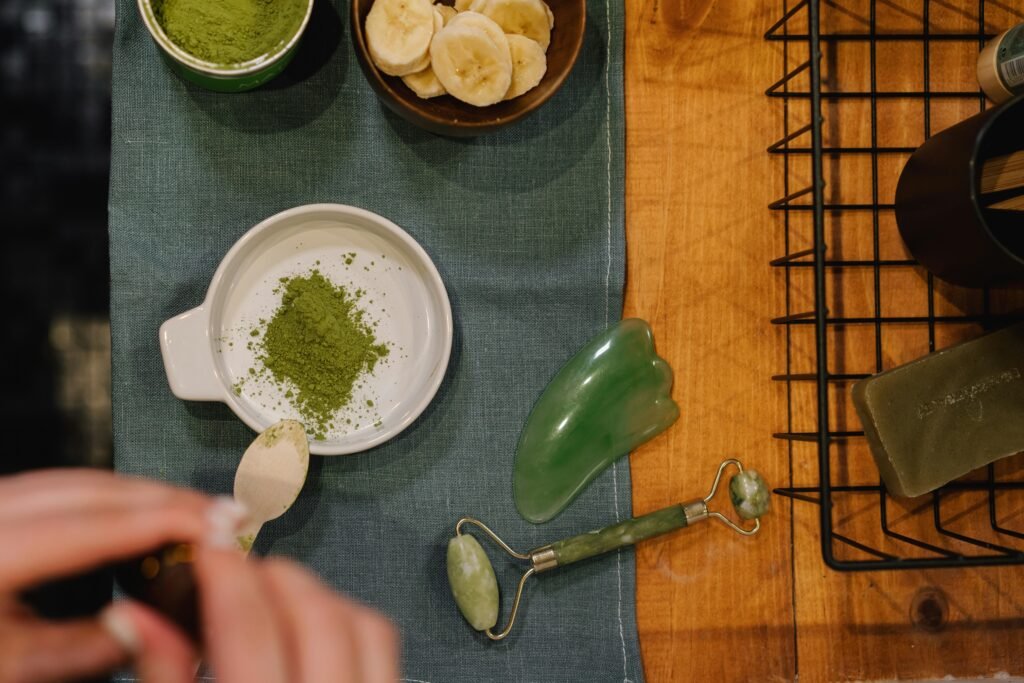
Herbal skincare is perfect for individuals wanting to tap into the benefits of plants. Crafting homemade herbal DIY skincare recipes can be straightforward, such as infusing oils with herbs like chamomile or green tea, which provide soothing and antioxidant properties. For those with oily or acne-prone skin, a toner made with witch hazel and tea tree oil can offer natural cleansing and help control excess oil.
Top Homemade Beauty Products for Daily Use
If you aim to create a complete skincare routine, some of the best handmade beauty products include face masks, creams, and toners featuring ingredients like rice water, ground oats, aloe vera gel, or rose water. These formulations are mild enough for everyday application, making them an excellent complement to any self-made skincare routine.
Natural Skincare Recipes for All Skin Types
One of the best features of DIY skincare is its ability to be customized for any skin type. For instance, individuals with dry skin may find incorporating avocado or glycerin into face masks beneficial. In contrast, those with oily skin might prefer lighter, water-based elements like aloe or cucumber. Exploring natural skincare recipes tailored to your skin type can significantly enhance the quest for a balanced, healthy complexion.
DIY Skincare Ingredients to Avoid
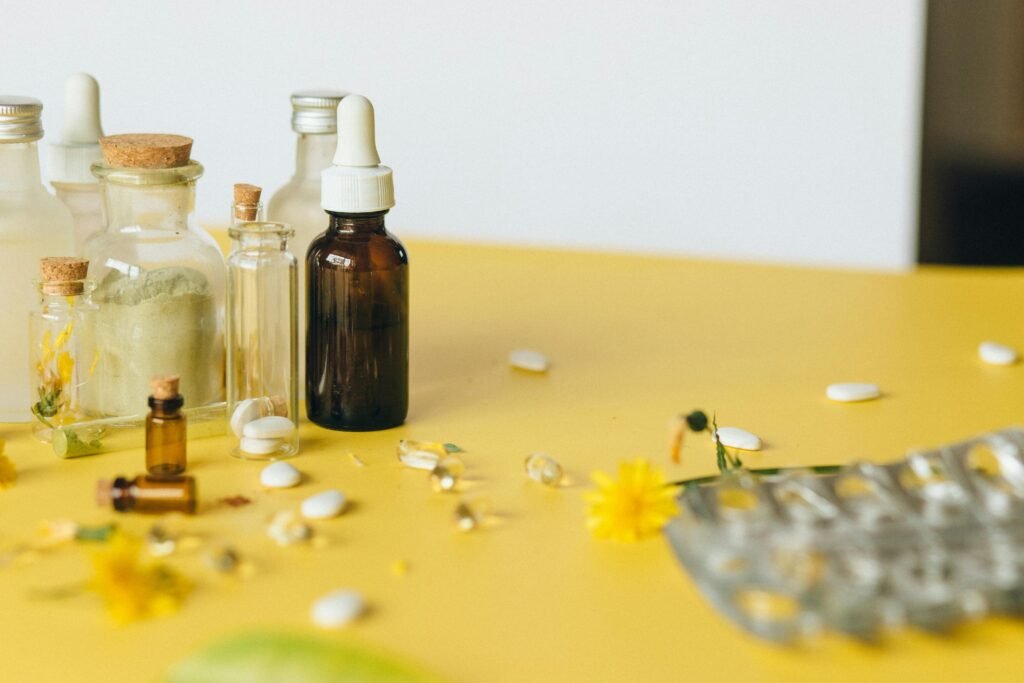
In the realm of skincare at home, some conventional ingredients are favored for their natural allure, yet they might be detrimental to your skin. Below is a compilation of frequently used products that could lead to irritation, dryness, or potentially clogged pores:
- Lemon Juice: Highly acidic, lemon juice can disrupt the skin’s natural pH balance, leading to dryness, irritation, increased sensitivity to sunlight, and worsening dark spots.
- Baking Soda: Often touted as an exfoliant, it has a high pH that can strip the skin of its natural oils, leading to dryness and irritation.
- Coconut Oil: While moisturizing, it’s highly comedogenic, meaning it can clog pores and lead to breakouts, especially on oily or acne-prone skin.
- Apple Cider Vinegar: Undiluted apple cider vinegar is too acidic and harsh for direct application and can cause burns or irritation.
- Sugar Scrubs: Large, jagged sugar granules are too abrasive for facial skin and can create micro-tears, damaging the skin barrier.
- Toothpaste: Often used to “dry out” pimples, toothpaste contains ingredients like menthol and baking soda, which can irritate and dry the skin.
- Essential Oils (Tea Tree, Lavender, etc.): Essential oils can be very potent without dilution and cause irritation or allergic reactions, especially on sensitive skin.
- Hot Water: Using very hot water on the face can strip the skin of its natural moisture, causing dryness and irritation over time.
- Egg Whites: Often used for tightening skin, raw egg whites carry a risk of salmonella and can cause skin irritation, particularly on sensitive or acne-prone skin.
- Hydrogen Peroxide: Known for disinfecting, hydrogen peroxide is too harsh for regular skin application and can cause dryness, irritation, and even blisters.
When creating DIY skincare products, it’s always best to research each ingredient, avoid those that may irritate, and consider skin type before application.
Final Comments: Bring Out the Best in Your Skin with DIY Skincare
Crafting a tailored DIY skincare routine on a budget is feasible and incredibly satisfying. Making easy homemade skin care recipes and targeted treatments like DIY dark spot face masks can help you achieve your skincare objectives naturally. Whether you’re a beginner or an experienced DIY skincare fan, remember that consistency and patience are essential for seeing improvements. Try various ingredients to discover what works best for your skin, and savor the journey toward a glowing, healthy complexion!
RELATED POSTS
View all

